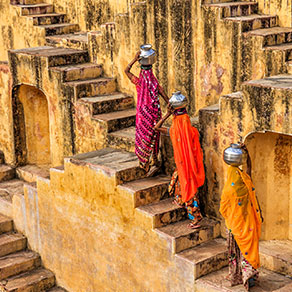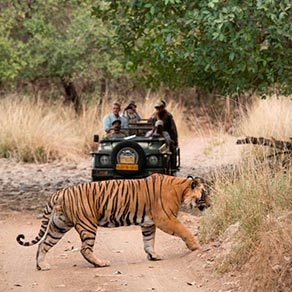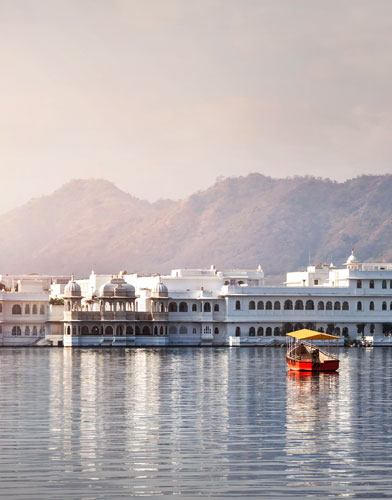India’s festivals & events: an essential guide
India, with its famously diverse cultures and traditions, is host to countless festivals and cultural events throughout the year.
Some – Diwali and Holi for example – have become global phenomena, others are much more local in scope. All are fascinating for the curious visitor who wants to delve into India’s rich and multilayered cultural heritage.
Here’s our essential guide to some of India’s most fascinating festivals.
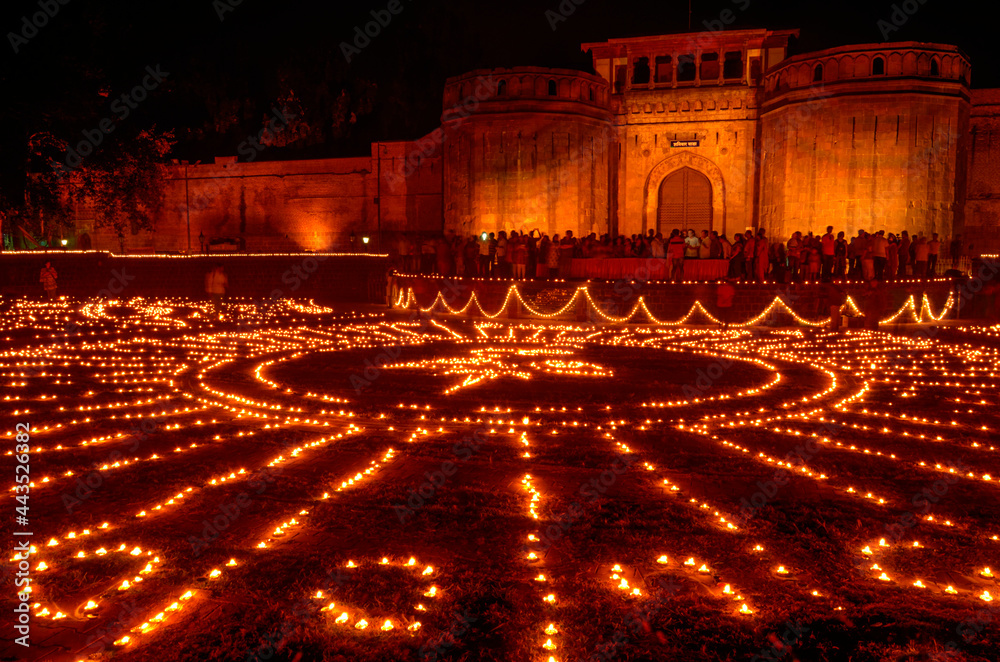
Diwali
Diwali, a five-day Hindu festival, typically occurs between mid-October and mid-November, with dates varying annually based on the lunar calendar. Commonly known as the Festival of Lights, it marks the victory of light over darkness and good over evil.
Diwali dates back thousands of years, with its roots in ancient Hindu mythology and religious texts. The festival commemorates the return of Lord Rama, his wife Sita, and his brother Lakshmana to Ayodhya after a 14-year exile and their victory over the demon king Ravana. The people of Ayodhya lit rows of oil lamps to welcome them home, symbolising the triumph of light over darkness and the guiding principle of Diwali.
Diwali’s cultural importance extends beyond India, as it is observed by Hindus, Sikhs, Jains, and Buddhists worldwide. Each faith has its unique historical and spiritual connections to the festival, making Diwali a unifying celebration that transcends geographical and religious boundaries.
Celebrated across India, the festival’s main events commence with Dhanteras, a day dedicated to buying gold or silver items and new utensils. Following Dhanteras is Naraka Chaturdasi, a day for cleaning and decorating homes.
During Diwali, homes are adorned with oil lamps called diyas, and colourful rangoli patterns are created on floors and courtyards. Firework displays and the bursting of firecrackers are common, contributing to noise and air pollution; consider using eco-friendly alternatives and earplugs if sensitive to sound. Sweets and savoury snacks are shared among family and friends, and many people exchange gifts.
To experience Diwali like a local, visit markets for festive shopping and decorations, such as Sadar Bazaar in Delhi or Dadar Market in Mumbai. Attend community events, where you can observe traditional music and dance performances. Note that public transport may be busier than usual, so plan accordingly.
While Diwali is widely celebrated, the festival’s customs and rituals can vary regionally. In Bengal, Diwali is associated with the worship of the goddess Kali, while in Gujarat, the New Year begins a day after Diwali. Travellers interested in lesser-known Diwali traditions can explore regional variations for a unique experience.
During your visit, respect local customs, dress modestly, and seek permission before photographing people or religious ceremonies. Finally, remain vigilant about personal belongings, as crowded spaces can attract pickpockets.
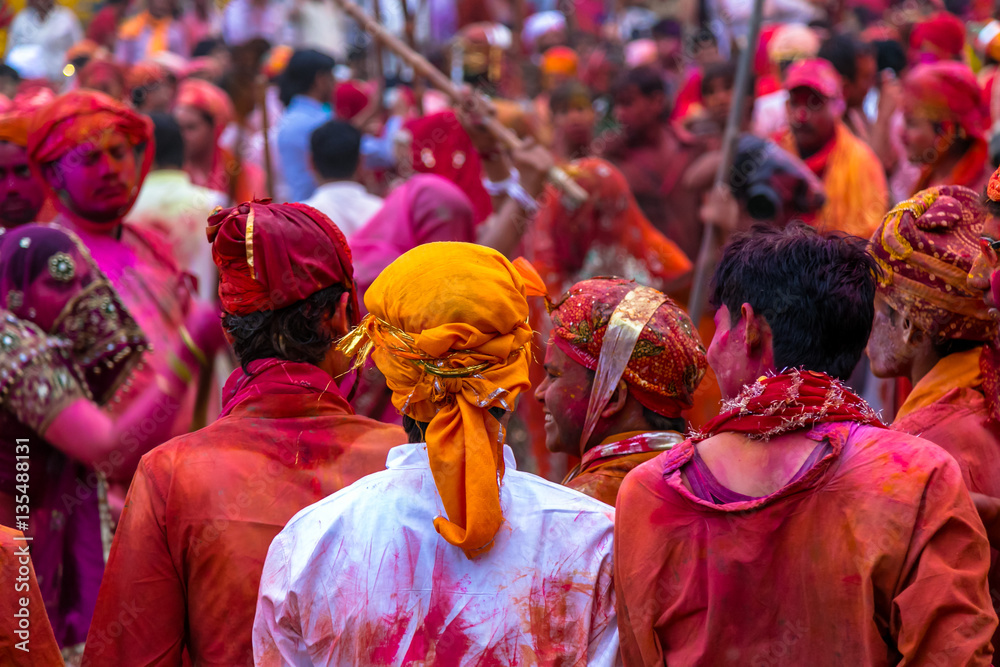
Holi
Holi, a Hindu spring festival, celebrates the triumph of good over evil and the arrival of warmer weather. Known as the Festival of Colours, Holi has origins in various Hindu myths, including the legend of Prahlad, a devotee of Lord Vishnu who survived his evil aunt Holika’s fire, symbolising the victory of good over evil.
Holi generally falls between late February and early March, with exact dates varying annually based on the lunar calendar. The festival lasts two days, with the first day known as Holika Dahan or Chhoti Holi, featuring bonfires symbolising the burning of Holika. The second day, Rangwali Holi or Dhulandi, sees participants throwing coloured powders and water at one another, accompanied by singing and dancing.
To experience Holi, consider visiting cities like Mathura and Vrindavan, associated with Lord Krishna’s childhood, where celebrations last longer and feature unique traditions. Otherwise, major cities like Delhi and Mumbai host lively Holi events. Join community gatherings or Holi parties organised by hotels and hostels to participate safely and respectfully.
During Holi, wear old clothes that can be stained and consider applying oil or sunscreen to your skin to make it easier to wash off colours. Avoid using harmful chemical-based powders and opt for eco-friendly alternatives. Be aware that public transport can be crowded, and some services may be limited, so plan accordingly.
For a distinctive Holi experience, visit the Shantiniketan area in West Bengal, where the festival is celebrated as Basanta Utsav with cultural programmes and traditional attire. Alternatively, explore the Lathmar Holi in Barsana and Nandgaon, where women playfully hit men with sticks as part of the festivities.
While enjoying Holi, be mindful of personal space, seek consent before applying colours to others, and remain vigilant about personal belongings in crowded areas.
Onam
Onam, Kerala’s biggest festival, is a harvest celebration that typically takes place between August and September. The event spans ten days and commemorates the return of the mythical King Mahabali, who is believed to visit his subjects during this time. Onam highlights Kerala’s rich cultural heritage and is observed with enthusiasm by people of all religions.
Marked by numerous activities, Onam festivities include snake boat races, known as Vallam Kali, held on the backwaters of Alappuzha and other locations. These races showcase the competitive spirit and teamsmanship of the local communities. Traditional dance performances, such as Kathakali and Thiruvathira, take centre stage during the festival, featuring colourful costumes, intricate makeup, and captivating storytelling through movement.
An essential part of Onam is the elaborate feast called Onasadya, a vegetarian meal served on a banana leaf. The meal consists of numerous dishes, including rice, curries, pickles, and desserts like payasam. Preparations for Onasadya often begin days in advance, with families coming together to cook and share the meal.
Pookalam, intricate floral designs created with flower petals, is another distinctive aspect of Onam. Families compete to create the most elaborate and colourful arrangements outside their homes, adding to the festive atmosphere.
To experience Onam, consider visiting Kerala during the festival dates and participating in local events. The state government and various organisations also host cultural programmes and special activities for tourists. Remember to book accommodation well in advance, as this is a popular time for visitors to explore Kerala.
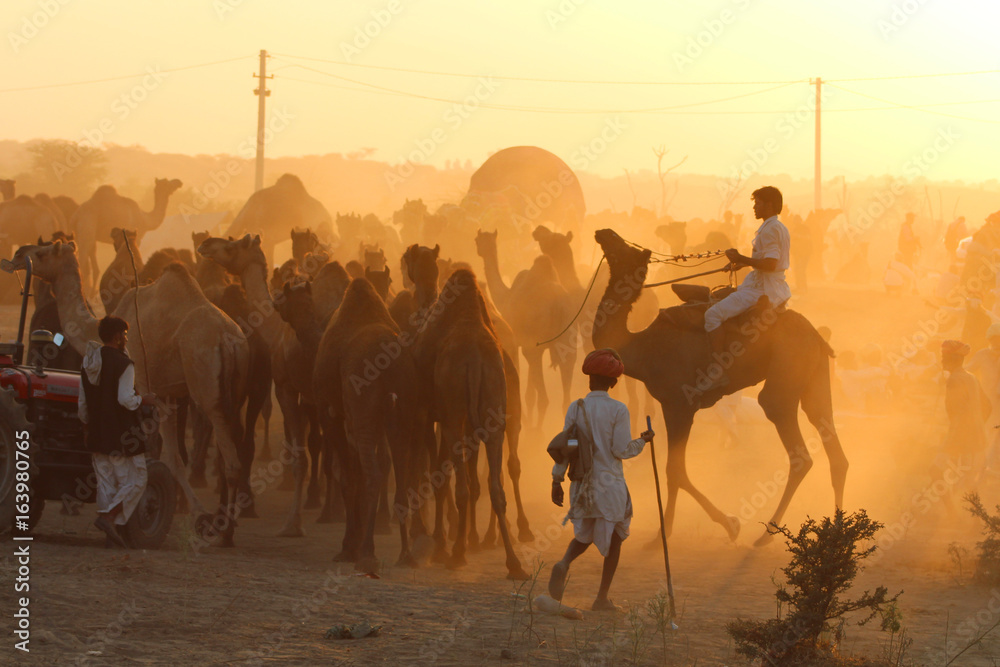
Pushkar Camel Fair
The Pushkar Camel Fair is an annual event held in Pushkar, Rajasthan, typically in November. The fair coincides with the religious festival of Kartik Purnima and lasts for around nine days. Thousands of camels, horses, and cattle are brought to the fairgrounds for trading, attracting traders and tourists alike.
Visitors can watch unique events like camel races, beauty contests, and the longest moustache competition. Cultural performances, including traditional music and dance, add to the vibrant atmosphere. Hot air balloon rides provide an aerial view of the fair, while food stalls offer an array of local delicacies.
Accommodation options range from hotels and guesthouses to luxury tented camps set up exclusively for the fair. Book well in advance, as the town sees a significant influx of visitors during this time. Be prepared for large crowds and remain cautious of personal belongings.
Kumbh Mela
Kumbh Mela is the world’s largest religious gathering, held every 12 years at four locations in India: Allahabad, Haridwar, Nashik, and Ujjain. The pilgrimage lasts for several weeks and is centred around the ritual bathing in the holy rivers at these sites. The next Kumbh Mela will take place in 2025.
Millions of pilgrims, including sadhus and devotees, attend the event, creating an unparalleled spiritual atmosphere. Apart from the ritual baths, visitors can witness religious processions, discussions with spiritual leaders, and various cultural activities.
During Kumbh Mela, accommodation options may be limited, and prices can rise significantly. Temporary tent cities are established to house pilgrims and tourists. Preparing well in advance and keeping an eye on official announcements is essential for a smooth experience.
Goa Carnival
The Goa Carnival, a Christian festival unique to the state, is held annually in February, typically lasting for three days. The event dates back to the Portuguese colonial era and showcases Goa’s rich cultural heritage.
The carnival features colourful parades with floats and street performances, as well as participants wearing masks and elaborate costumes. The festival concludes with the Red and Black Dance, a formal ball attended by locals and tourists. Panaji, Margao, Vasco, and Mapusa are popular spots for the parades.
While attending the carnival, dress comfortably and be prepared for crowded streets. Book accommodation in advance to secure a convenient location. Use caution with personal belongings during the festivities.
International Yoga Festival
The International Yoga Festival takes place annually in March in Rishikesh, the “Yoga Capital of the World.” The week-long event attracts yoga enthusiasts from around the globe and is held at the Parmarth Niketan Ashram, situated on the banks of the Ganges.
Participants can attend various workshops, classes, and lectures on different aspects of yoga, meditation, and spirituality. Renowned teachers and practitioners lead the sessions, providing an opportunity to deepen one’s practice and understanding. In addition to yoga, the festival includes cultural performances, Ganga Aarti ceremonies, and opportunities to explore the scenic beauty of Rishikesh.
To attend the International Yoga Festival, register online through the event’s official website. Accommodation options include staying at the Parmarth Niketan Ashram or nearby hotels and guesthouses. Booking well in advance is highly recommended, as the festival attracts a large number of visitors. When attending sessions, adhere to the ashram’s code of conduct and dress modestly, respecting the spiritual atmosphere of the event.
YONDER SUGGESTIONS
Yonder is a specialist India tour operator, including tailor-made, luxury holidays to India which can include any of the must see places discussed in this article.
Previous holidays which we’ve booked include India’s Golden Triangle and Tigers tour, a culture, wildlife and backwaters tour in Kerala and the hidden India Rajasthan tour. These can be great inspiration for your own itineraries.
We can also arrange luxury holidays which explore all the different aspects of India such as our Incredible India tour.
All Yonder itineraries are crafted on a tailor-made, one-off basis, so you can be sure that your holiday will be as individual as you are.
India, with its famously diverse cultures and traditions, is host to countless festivals and cultural events throughout the year.
Some – Diwali and Holi for example – have become global phenomena, others are much more local in scope. All are fascinating for the curious visitor who wants to delve into India’s rich and multilayered cultural heritage.
Here’s our essential guide to some of India’s most fascinating festivals.

Diwali
Diwali, a five-day Hindu festival, typically occurs between mid-October and mid-November, with dates varying annually based on the lunar calendar. Commonly known as the Festival of Lights, it marks the victory of light over darkness and good over evil.
Diwali dates back thousands of years, with its roots in ancient Hindu mythology and religious texts. The festival commemorates the return of Lord Rama, his wife Sita, and his brother Lakshmana to Ayodhya after a 14-year exile and their victory over the demon king Ravana. The people of Ayodhya lit rows of oil lamps to welcome them home, symbolising the triumph of light over darkness and the guiding principle of Diwali.
Diwali’s cultural importance extends beyond India, as it is observed by Hindus, Sikhs, Jains, and Buddhists worldwide. Each faith has its unique historical and spiritual connections to the festival, making Diwali a unifying celebration that transcends geographical and religious boundaries.
Celebrated across India, the festival’s main events commence with Dhanteras, a day dedicated to buying gold or silver items and new utensils. Following Dhanteras is Naraka Chaturdasi, a day for cleaning and decorating homes.
During Diwali, homes are adorned with oil lamps called diyas, and colourful rangoli patterns are created on floors and courtyards. Firework displays and the bursting of firecrackers are common, contributing to noise and air pollution; consider using eco-friendly alternatives and earplugs if sensitive to sound. Sweets and savoury snacks are shared among family and friends, and many people exchange gifts.
To experience Diwali like a local, visit markets for festive shopping and decorations, such as Sadar Bazaar in Delhi or Dadar Market in Mumbai. Attend community events, where you can observe traditional music and dance performances. Note that public transport may be busier than usual, so plan accordingly.
While Diwali is widely celebrated, the festival’s customs and rituals can vary regionally. In Bengal, Diwali is associated with the worship of the goddess Kali, while in Gujarat, the New Year begins a day after Diwali. Travellers interested in lesser-known Diwali traditions can explore regional variations for a unique experience.
During your visit, respect local customs, dress modestly, and seek permission before photographing people or religious ceremonies. Finally, remain vigilant about personal belongings, as crowded spaces can attract pickpockets.

Holi
Holi, a Hindu spring festival, celebrates the triumph of good over evil and the arrival of warmer weather. Known as the Festival of Colours, Holi has origins in various Hindu myths, including the legend of Prahlad, a devotee of Lord Vishnu who survived his evil aunt Holika’s fire, symbolising the victory of good over evil.
Holi generally falls between late February and early March, with exact dates varying annually based on the lunar calendar. The festival lasts two days, with the first day known as Holika Dahan or Chhoti Holi, featuring bonfires symbolising the burning of Holika. The second day, Rangwali Holi or Dhulandi, sees participants throwing coloured powders and water at one another, accompanied by singing and dancing.
To experience Holi, consider visiting cities like Mathura and Vrindavan, associated with Lord Krishna’s childhood, where celebrations last longer and feature unique traditions. Otherwise, major cities like Delhi and Mumbai host lively Holi events. Join community gatherings or Holi parties organised by hotels and hostels to participate safely and respectfully.
During Holi, wear old clothes that can be stained and consider applying oil or sunscreen to your skin to make it easier to wash off colours. Avoid using harmful chemical-based powders and opt for eco-friendly alternatives. Be aware that public transport can be crowded, and some services may be limited, so plan accordingly.
For a distinctive Holi experience, visit the Shantiniketan area in West Bengal, where the festival is celebrated as Basanta Utsav with cultural programmes and traditional attire. Alternatively, explore the Lathmar Holi in Barsana and Nandgaon, where women playfully hit men with sticks as part of the festivities.
While enjoying Holi, be mindful of personal space, seek consent before applying colours to others, and remain vigilant about personal belongings in crowded areas.
Onam
Onam, Kerala’s biggest festival, is a harvest celebration that typically takes place between August and September. The event spans ten days and commemorates the return of the mythical King Mahabali, who is believed to visit his subjects during this time. Onam highlights Kerala’s rich cultural heritage and is observed with enthusiasm by people of all religions.
Marked by numerous activities, Onam festivities include snake boat races, known as Vallam Kali, held on the backwaters of Alappuzha and other locations. These races showcase the competitive spirit and teamsmanship of the local communities. Traditional dance performances, such as Kathakali and Thiruvathira, take centre stage during the festival, featuring colourful costumes, intricate makeup, and captivating storytelling through movement.
An essential part of Onam is the elaborate feast called Onasadya, a vegetarian meal served on a banana leaf. The meal consists of numerous dishes, including rice, curries, pickles, and desserts like payasam. Preparations for Onasadya often begin days in advance, with families coming together to cook and share the meal.
Pookalam, intricate floral designs created with flower petals, is another distinctive aspect of Onam. Families compete to create the most elaborate and colourful arrangements outside their homes, adding to the festive atmosphere.
To experience Onam, consider visiting Kerala during the festival dates and participating in local events. The state government and various organisations also host cultural programmes and special activities for tourists. Remember to book accommodation well in advance, as this is a popular time for visitors to explore Kerala.

Pushkar Camel Fair
The Pushkar Camel Fair is an annual event held in Pushkar, Rajasthan, typically in November. The fair coincides with the religious festival of Kartik Purnima and lasts for around nine days. Thousands of camels, horses, and cattle are brought to the fairgrounds for trading, attracting traders and tourists alike.
Visitors can watch unique events like camel races, beauty contests, and the longest moustache competition. Cultural performances, including traditional music and dance, add to the vibrant atmosphere. Hot air balloon rides provide an aerial view of the fair, while food stalls offer an array of local delicacies.
Accommodation options range from hotels and guesthouses to luxury tented camps set up exclusively for the fair. Book well in advance, as the town sees a significant influx of visitors during this time. Be prepared for large crowds and remain cautious of personal belongings.
Kumbh Mela
Kumbh Mela is the world’s largest religious gathering, held every 12 years at four locations in India: Allahabad, Haridwar, Nashik, and Ujjain. The pilgrimage lasts for several weeks and is centred around the ritual bathing in the holy rivers at these sites. The next Kumbh Mela will take place in 2025.
Millions of pilgrims, including sadhus and devotees, attend the event, creating an unparalleled spiritual atmosphere. Apart from the ritual baths, visitors can witness religious processions, discussions with spiritual leaders, and various cultural activities.
During Kumbh Mela, accommodation options may be limited, and prices can rise significantly. Temporary tent cities are established to house pilgrims and tourists. Preparing well in advance and keeping an eye on official announcements is essential for a smooth experience.
Goa Carnival
The Goa Carnival, a Christian festival unique to the state, is held annually in February, typically lasting for three days. The event dates back to the Portuguese colonial era and showcases Goa’s rich cultural heritage.
The carnival features colourful parades with floats and street performances, as well as participants wearing masks and elaborate costumes. The festival concludes with the Red and Black Dance, a formal ball attended by locals and tourists. Panaji, Margao, Vasco, and Mapusa are popular spots for the parades.
While attending the carnival, dress comfortably and be prepared for crowded streets. Book accommodation in advance to secure a convenient location. Use caution with personal belongings during the festivities.
International Yoga Festival
The International Yoga Festival takes place annually in March in Rishikesh, the “Yoga Capital of the World.” The week-long event attracts yoga enthusiasts from around the globe and is held at the Parmarth Niketan Ashram, situated on the banks of the Ganges.
Participants can attend various workshops, classes, and lectures on different aspects of yoga, meditation, and spirituality. Renowned teachers and practitioners lead the sessions, providing an opportunity to deepen one’s practice and understanding. In addition to yoga, the festival includes cultural performances, Ganga Aarti ceremonies, and opportunities to explore the scenic beauty of Rishikesh.
To attend the International Yoga Festival, register online through the event’s official website. Accommodation options include staying at the Parmarth Niketan Ashram or nearby hotels and guesthouses. Booking well in advance is highly recommended, as the festival attracts a large number of visitors. When attending sessions, adhere to the ashram’s code of conduct and dress modestly, respecting the spiritual atmosphere of the event.
YONDER SUGGESTIONS
Yonder is a specialist India tour operator, including tailor-made, luxury holidays to India which can include any of the must see places discussed in this article.
Previous holidays which we’ve booked include India’s Golden Triangle and Tigers tour, a culture, wildlife and backwaters tour in Kerala and the hidden India Rajasthan tour. These can be great inspiration for your own itineraries.
We can also arrange luxury holidays which explore all the different aspects of India such as our Incredible India tour.
All Yonder itineraries are crafted on a tailor-made, one-off basis, so you can be sure that your holiday will be as individual as you are.

 GBP
GBP
